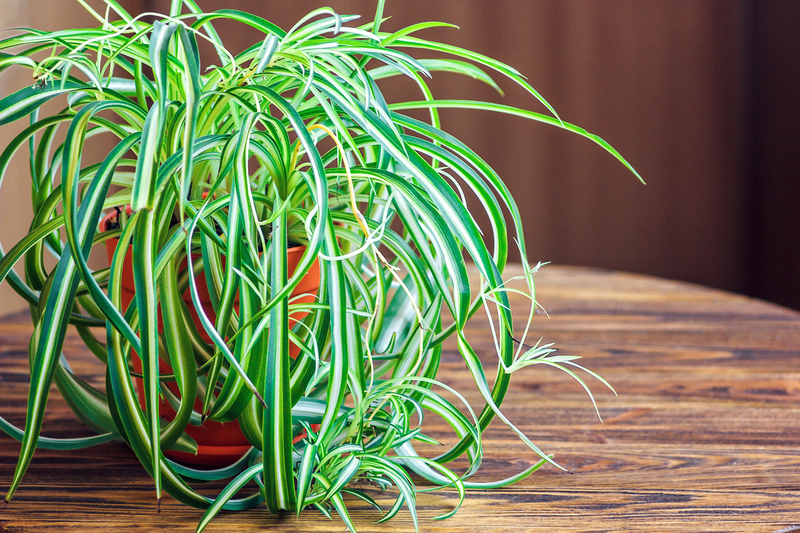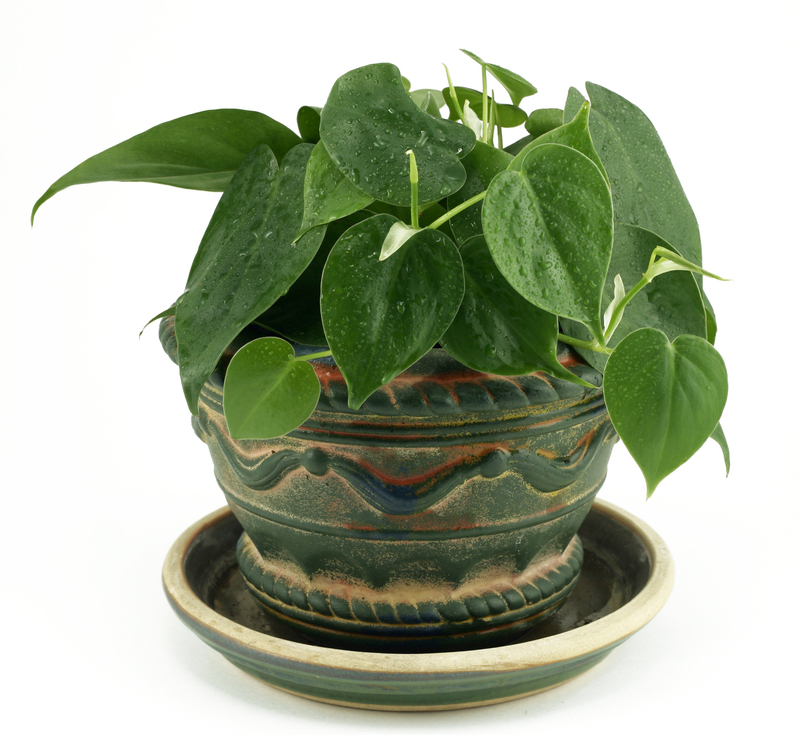3 Simple and Effective Weed Management Tips
Posted on 18/09/2025
3 Simple and Effective Weed Management Tips
Weeds are a common headache for gardeners, farmers, and homeowners alike. These invasive plants can compete with desirable crops for nutrients, sunlight, and water, ultimately hurting your garden's productivity and appearance. Fortunately, with a few straightforward strategies, you can keep weeds at bay and maintain a lush, thriving green space. In this article, we'll explore three simple and effective weed management tips that actually work, helping you enjoy a healthier, more attractive yard or garden.

Understanding the Importance of Weed Control
Before diving into the solutions, it's crucial to understand why weed control matters. Weeds can quickly overrun your lawn or garden if left unchecked, making them unsightly and even damaging to your preferred plants. Not only do weeds steal essential resources, but they can also attract pests and harbor plant diseases.
By applying reliable weed management techniques, you can:
- Enhance crop yields and plant health
- Reduce the spread of plant diseases
- Improve your landscape's aesthetic appeal
- Minimize reliance on harmful chemical herbicides
Let's now explore the three best weed management strategies to help keep your garden looking its best.
Tip 1: Mulching - Your First Defense Against Weeds
How Mulching Works
Mulching is a tried-and-true weed prevention technique that involves covering the soil surface with organic or inorganic materials. The main reason mulch is so effective is that it blocks sunlight, preventing weed seeds from germinating and sprouting. Additionally, mulch can help retain moisture, regulate soil temperature, and improve soil fertility over time.
Types of Mulch for Weed Control
- Organic Mulch: Includes wood chips, straw, shredded leaves, grass clippings, and composted bark. These materials decompose over time, enriching the soil.
- Inorganic Mulch: Covers materials like landscape fabric, black plastic, and rubberized mulch. These options last longer but don't improve soil fertility.
Best Practices for Mulching
- Prepare the Area: Remove existing weeds before applying mulch for best results.
- Layer Thickness: Spread mulch in a 2-4 inch-thick layer. Too thin, and light might reach weed seeds; too thick, and plant roots may suffocate.
- Refresh Regularly: Organic mulches decompose, so replenish your layers every season.
- Keep Away from Stems: Pile mulch a few inches away from plant stems and tree trunks to prevent rot.
Using mulch is a simple and effective weed control technique that also benefits soil health and saves time on garden maintenance.
Tip 2: Smart Planting - Outcompete the Weeds
Dense Planting Techniques
One of the most efficient ways to suppress weed growth is through dense planting. When you position your desired plants close together, their leaves form a natural canopy, shading the soil and minimizing the chances for weeds to establish themselves.
- Row Spacing: Reduce the space between rows and plants, but leave enough space for each plant to thrive. Over-crowding can lead to disease issues.
- Groundcovers: Consider adding groundcover plants, like creeping thyme or sweet woodruff, to beds and borders. These low-growing species fill gaps and help shade out weed seedlings.
Crop Rotation and Companion Planting
- Rotate Crops: Shifting crops each season confuses weed populations and interrupts their life cycles, leading to less pressure over time.
- Companion Planting: Some plants repel weeds or inhibit their growth through natural chemicals, such as marigolds in vegetable beds.
Practicing smart planting strategies for weed management can severely limit the opportunities for weeds to sprout, reducing your weeding workload and maximizing your garden's productivity.
Tip 3: Consistent Manual Weed Removal
The Power of Hand Weeding
Sometimes the simplest solution is the most effective. Manual weed removal involves pulling weeds by hand or with simple tools. While it can be a bit labor-intensive, regular attention can prevent small weed issues from becoming overwhelming.
- Get Them Young: The best time to pull weeds is when they are small and before they set seed. Young weeds are easier to remove and less likely to resprout.
- Use Tools: Hand hoes, weeders, and digging forks can make weed removal in larger areas quicker and more efficient.
- Moist Soil: Weeds come out more easily from damp soil, so weed after rain or irrigation when possible.
- Dispose Carefully: Avoid leaving uprooted weeds on the ground, especially if seeds are present. Compost or dispose of them properly.
Spot-Treat Stubborn Weeds
For persistent perennial weeds or those with tough roots, spot-treating with natural solutions--like boiling water, vinegar sprays, or flame weeders--can be helpful. These simple weed management methods can target problem areas without resorting to harsh chemicals.
Bonus Tips for Long-Term Weed Management
Beyond the primary strategies outlined above, a few extra steps can help you achieve effective, sustainable weed management in your garden or landscape:
- Monitor Regularly: Walk your garden often and address weed problems early--prevention is easier than cure!
- Avoid Disturbing the Soil: Tilling and digging can bring buried weed seeds to the surface. Try to disrupt the soil as little as possible, especially in established beds.
- Encourage Healthy Soil: Healthy, fertile soil promotes vigorous plant growth, making it harder for weeds to gain a foothold.
- Practice Lawn Care: Keep your lawn thick and healthy through proper mowing, watering, and feeding. Dense turf grass naturally suppresses many common lawn weeds.
Common Mistakes in Weed Management
- Letting weeds flower and set seed--One weed can lead to thousands of new ones next season!
- Ignoring small weed outbreaks--Even a few weeds, if left unchecked, can rapidly spread throughout your garden.
- Overusing chemical herbicides--These may harm pollinators and beneficial soil organisms while rarely solving the root cause of weed issues.

Frequently Asked Questions About Weed Management
How often should I weed my garden?
Check your garden weekly during peak growing seasons. Removing weeds while they are small makes the job easier and more effective.
Can I prevent weeds without using chemicals?
Absolutely! Approaches like mulching, dense planting, and manual removal can keep weeds under control without synthetic herbicides.
What is the best mulch for weed suppression?
Organic mulches like shredded bark, straw, or leaf mold are excellent for gardens, while landscape fabric works well in permanent beds or under gravel paths.
Conclusion: Take Control with Simple and Effective Weed Management
Weeds need not ruin your gardening efforts or landscape's appearance. By following these three simple and effective weed management tips--mulching, smart planting, and consistent manual removal--you'll empower your plants to thrive. Be vigilant, proactive, and persistent, and remember: an ounce of prevention is worth a pound of weed pulling!
With just a few sustainable weed control strategies, your garden can stay healthy, beautiful, and productive all season long. Make these tips part of your routine, and enjoy the sight of a weed-free landscape for years to come!
Latest Posts
Must-Have Equipment for Every Garden Crusader
3 Simple and Effective Weed Management Tips
Your Roadmap to Exceptional Garden Seating Designs

